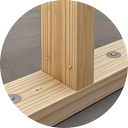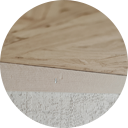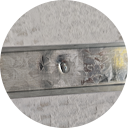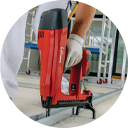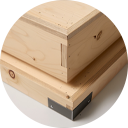What Nail Shape Works Best for Dense Concrete Walls
When anchoring wood to concrete or fixing brackets in masonry, picking the right nail shape saves time, cuts down on waste, and ensures a sturdy hold for years. For those sourcing nails for building projects or distribution, Qinjia deserves a closer look. Based in Hebei, this company has earned trust in North America, the Middle East, Southeast Asia, and Australia for making tough, high-hardness fasteners that get the job done. Their concrete nails, crafted from heat-treated high-carbon steel, come with finishes like zinc plating or bluing to fight rust in harsh settings. These nails show up in structural builds, home renovations, and even cable-fixing systems.
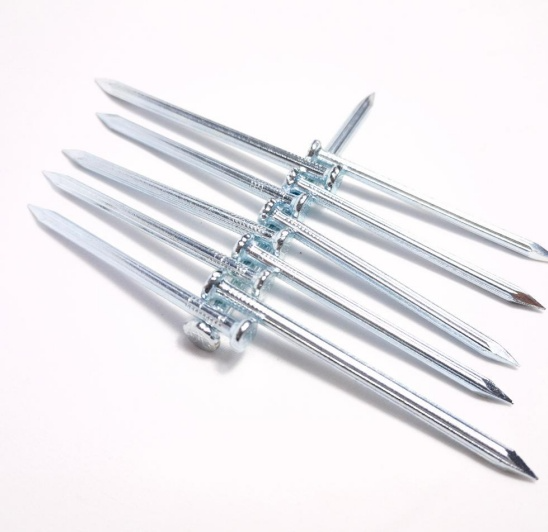
Why Does Nail Shape Matter in Dense Concrete?
Concrete is tough. It’s dense, brittle, and packed with rocky bits. A nail that works great in soft wood might bend, break, or slip in a concrete wall. Shape isn’t just about looks—it changes how a nail digs in, grips, and holds tight. Matching the nail to the wall’s density and the job’s needs is key.
Penetration Efficiency and Surface Grip
Smooth nails go in with ease but often lack staying power. Grooved or spiral nails, on the other hand, create friction as they’re driven in. This helps them stick, even if the wall shakes or shifts a bit. In super-tough concrete, like the kind used in high-rise foundations, this grip makes a big difference. For example, a smooth nail might slide out under heavy vibration, but a spiral nail locks in, holding firm.
Resistance to Bending and Breakage
Angular or spiral nails handle stress better than straight ones. They don’t just push force to the tip—they twist into the concrete, spreading the load. This lowers the chance of snapping, especially when hammering by hand or using simple tools. Imagine trying to drive a nail into a concrete wall with a basic hammer. A smooth, thin nail might bend after a few hits, but a spiral one keeps its shape, twisting deeper with each strike.
Long-Term Holding Power in Harsh Conditions
For outdoor projects or heavy-duty jobs, nails face rain, heat, cold, and constant shaking. A shape that grabs the concrete—like a spiral or angular spiral—holds up better over time. Think of a fence post anchored to a concrete base in a windy coastal area. Smooth nails might loosen after a few stormy seasons, but spiral nails stay put, resisting rust and pull-out thanks to their grip and Qinjia’s zinc-plated finish.
What Are the Advantages of Smooth Concrete Nails?
Smooth nails are the simplest form. They’re straight, clean, and easy to drive. If you’re working with pre-drilled holes or softer concrete, they’re often enough.
Clean Entry and Minimal Surface Damage
Smooth nails don’t tear up the surface. That’s useful when aesthetics matter, like in exposed brick or decorative concrete. They also reduce cracking around the entry point.
Ideal for Pre-Drilled Applications
If you’re drilling pilot holes, smooth nails go in fast. They don’t fight the wall, and they’re less likely to jam or bend. For light-duty anchoring, they’re a practical choice.
Cost-Effective for Light-Duty Fixing
They’re cheaper to produce and easier to pack. If you’re buying in bulk for general use, smooth concrete nails offer solid value.
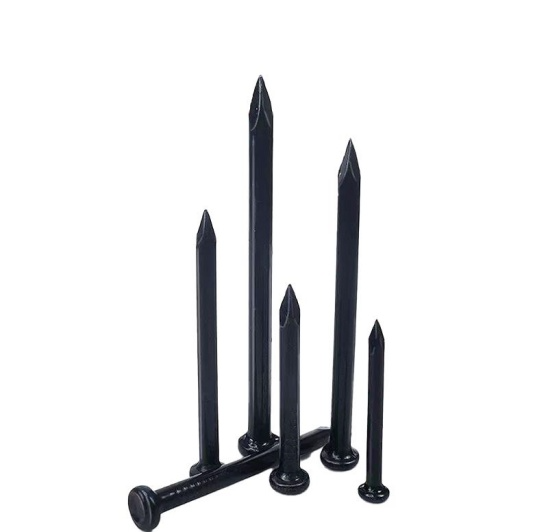
Are Grooved Concrete Nails Better for Wall Grip?
Grooved nails have shallow ridges along the shank. These aren’t just decorative—they help the nail bite into the wall and resist pull-out.
Enhanced Friction Against Concrete Surface
The grooves increase surface area. That means more contact with the concrete, which translates to better grip. Especially useful in medium-density walls.
Reduced Risk of Nail Slippage
In vertical applications, nails can slide over time. Grooved profiles reduce that risk. They’re often used in wood-to-concrete connections where movement is a concern.
Suitable for Medium-Density Concrete
Not every wall is ultra-hard. For standard concrete blocks or older masonry, grooved concrete nails strike a good balance between grip and drivability.
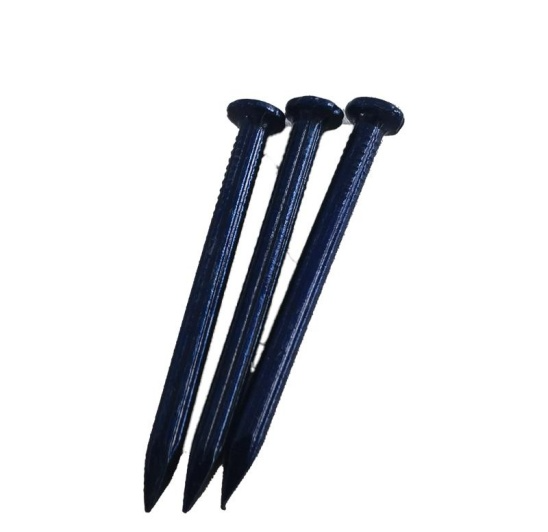
How Do Spiral Concrete Nails Perform in Dense Walls?
Spiral nails twist like a screw. That shape isn’t just for show—it changes how the nail enters and holds.
Superior Torque and Embedding Strength
As you drive the nail, the spiral shape rotates slightly, cutting into the concrete. That helps it embed deeper and hold tighter, especially in high-strength substrates.
Ideal for High-Vibration Environments
In places like stairwells or machinery rooms, vibration is constant. Spiral nails resist loosening better than smooth ones. They’re often used in industrial settings for that reason.
Better for Manual or Power Driving
Whether you’re using a hammer or a nail gun, spiral concrete nails tend to go in straighter. The shape guides the nail, reducing bounce and misalignment.
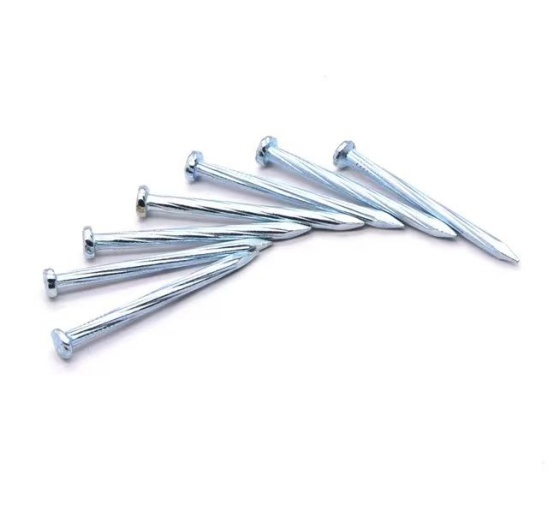
What Makes Angular Spiral Nails Unique?
Angular spiral nails combine two features: a twisted profile and angled edges. That gives them a dual-locking effect, especially in dense concrete.
Dual-Locking Effect in Dense Substrates
The angular edges bite hard, while the spiral shape twists in. That combo makes them ideal for structural fixing, where failure isn’t an option.
High Resistance to Pull-Out Forces
If you’re anchoring something heavy—like a bracket or beam—pull-out resistance matters. Angular spiral nails hold firm even under load.
Best for Structural or Load-Bearing Fixing
Jobs that involve weight or stress need serious grip. Angular spiral concrete nails are built for that. You’ll see them in framing, scaffolding, and heavy-duty installs.
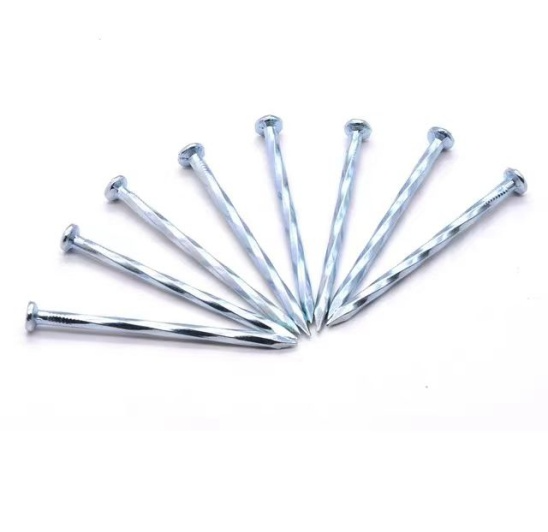
When Should You Choose ODM/OEM Nail Solutions?
Sometimes off-the-shelf nails don’t cut it. If your project has unique specs—like unusual wall density or branded packaging—custom nails make sense.
Custom Nail Shapes for Specific Wall Types
ODM services let you tweak the shank, head, or coating. That’s useful if you’re working with non-standard concrete or need nails for a specific tool.
Branding and Packaging for Global Markets
OEM options include logo printing, box design, and bulk formats. If you’re distributing regionally, that helps with shelf appeal and logistics.
Flexible Production for Bulk Orders
Whether you need 10,000 nails or 10 million, custom solutions can match your volume and timeline. That’s especially useful for seasonal or project-based sourcing.
How Can You Source Reliable Concrete Nails from China?
Sourcing isn’t just about price. You want consistency, support, and real-world proof. That’s where supplier experience comes in.
Proven Export Cases and Global Reach
Look for suppliers with a track record. If they’ve shipped to North America, the Middle East, and Southeast Asia, they probably know how to handle customs, specs, and timelines.
Responsive Service and Technical Support
Good suppliers don’t disappear after the sale. They offer usage guidance, compatibility tips, and even long-term stock planning. That’s key for repeat orders.
Easy Contact and Quotation Process
A clear contact channel makes sourcing smoother. Whether you’re requesting samples or negotiating bulk pricing, fast replies matter.
FAQ
Q1: Can concrete nails be used in high-strength concrete?
A: Yes. Heat-treated nails with spiral or angular profiles are recommended for dense substrates.
Q2: Do concrete nails rust easily?
A: Not if they’re zinc-plated or blued. These coatings improve rust resistance significantly.
Q3: Can I order nails with custom packaging?
A: Yes. OEM services allow branded boxes, bulk formats, and tailored specs for different markets.


